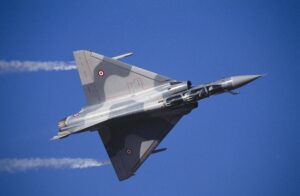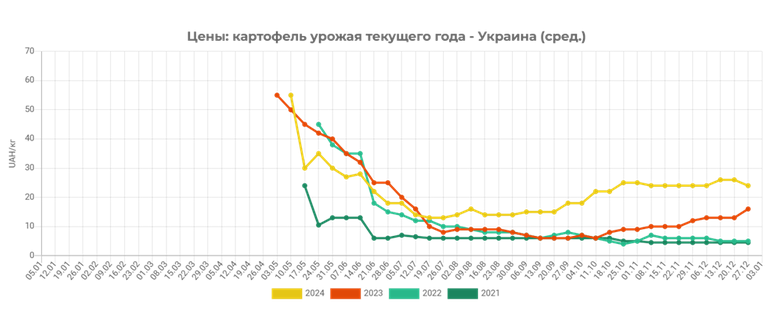
The six-month training of Ukrainian pilots and ground personnel for Dassault Mirage 2000-5F fighter jets has ended in France, French Aid to Ukraune reports on social network X.
“After six months of training for Ukrainian pilots and mechanics on the Mirage 2000-5F, the training has been completed,” the channel said in a statement released on Wednesday.
As reported, in November, the Ambassador of the French Republic to Ukraine, Gael Weissier, confirmed that in early 2025, French Dassault Mirage 2000-5F fighters would be delivered to Ukraine. The ambassador did not say how many planes could be delivered, noting that it was up to the authorities to announce.
At the same time, the French media outlet OpenNews reported in November, citing a member of the French National Assembly, Deputy Chairman of the Defense Committee in Parliament, Frank Gilletti, that France would “soon” supply the first six Mirage 2000-5Fs with a “full support model” to the Ukrainian Armed Forces. Earlier, the media reported that three aircraft would be delivered in early 2025.
The Dassault Mirage 2000-5F is a fourth-generation French multi-role fighter developed in the 1970s by Dassault. It has been in service since 1984.
It was the main combat aircraft of the French Air Force in the late XX – early XXI century. It is in service with several countries in Asia, Europe and Latin America.

According to the daily monitoring data of EastFruit project, this week the potato market in Ukraine has seen a decrease in trading activity. Contrary to the hopes of farmers that this product will once again increase in price on the eve of New Year vacations, the selling prices for potatoes in Ukraine, on the contrary, began to decline. Wholesale companies, in turn, see no reason to raise prices and increase the volume of purchases of this product, as the demand for this product has significantly decreased.

Thus, today marketable potatoes are on sale in the range of 18-28 UAH/kg ($0.43-0.67/kg), depending on the quality, variety and volume of offered batches of products, which is on average 12% cheaper than at the end of the last working week.
The reason for a slight decrease in prices in this segment was not only weakening demand for potatoes, but also stable supplies of these products from foreign markets. At the same time, most key market players note mediocre quality characteristics of imported potatoes, which, in turn, affected the pace of sales of local products as well.
Nevertheless, in general, Ukrainian farmers do not complain about the selling prices for potatoes this season, because this product has risen in price by an average of 41% compared to last year. The reason for such a significant price difference experts call the decline in potato yields in Ukraine due to unfavorable weather conditions in the summer months. Many farmers also note a gradual deterioration in the quality of products stored in storage.
You can get more detailed information about the development of the market of potatoes and other horticultural products in Ukraine by subscribing to the analytical weekly EastFruit Ukraine Weekly Pro. Detailed product information is available here.

Zezman Holding (Odesa) completed the construction of 15.2 thousand square meters of housing in 2024 and will continue to implement the previously announced residential estates in Uzhhorod and Odesa next year.
“This year, we have taken a bold and strategically important step by expanding our presence from the southern region to the west of Ukraine. We presented two large-scale projects: Lizrome in Uzhhorod, the first residential community in the region that meets the principles of sustainable development, and Gross Liebental cottage community in Odesa agglomeration, designed with a focus on energy autonomy, security and flexibility of housing solutions,” Boris Goldenstein, founder and CEO of Zezman Holding, toldInterfax-Ukraine.
By the end of 2024, the developer completed the construction of two buildings with 357 apartments in the Artville residential complex in Odesa, with a total area of 15.2 thousand square meters. The construction of nine buildings for 1 thousand apartments with a total area of 43.5 thousand square meters is also underway.
According to the company, about 40% of sales are made under the eOselya program, which indicates a high demand for mortgage programs.
“At the same time, we are seeing an increase in demand for ready-made housing, in particular, for renovated apartments that meet the principles of ready to use. This reflects the changing priorities of consumers who are looking for comfort and convenience without spending time and money on repairs,” Zezman Holding said.
Founded in 2013, Zezman Holding has commissioned 13 houses, with another 28 residential buildings at various stages of construction.

Metinvest Mining and Metallurgical Group mastered the production of 20 new products in 2024, including six new products at its joint venture, Zaporizhstal, which launched six new products.
According to the group’s press release on Friday, in the face of Russia’s full-scale invasion of Ukraine, which has been going on for almost three years, Metinvest remains the country’s economic and industrial backbone. Over the decade of war, the group has managed to launch 422 new products.
This year, most new products were launched in the long products segment (12), cold-rolled coils and sheets (four), hot-rolled coils and sheets (two), and galvanized coils and semi-finished products (one each).
Kametstal and Zaporizhstal accounted for the bulk of new products. One new product was launched by Unisteel, the Group’s galvanized steel producer.
All new long products were launched at Kametstal. Thus, the plant has mastered the production of rebar for reinforced concrete structures: two new sizes and a new strength class according to the Ukrainian national standard DSTU 3760, as well as rebar according to Polish standards.
In addition, the company has launched the production of six types of wire rod made of different steel grades and in various sizes in accordance with Ukrainian, international, European and American standards. The products are used in construction, civil engineering and metal products manufacturing.
In addition, the company has mastered the production of reinforced steel profiles for supporting mine workings such as SVP33 according to Ukrainian standards. These special interchangeable products are used in the manufacture of arch support for domestic mining and metals mines. The company also started production of round rolled products made of St3ps steel with a diameter of 27 mm in accordance with Ukrainian standards, which are used in construction and civil engineering.
Zaporizhstal is the leader in new products in the cold-rolled coil and plate segment: the plant has launched four products. These include S250GD coils made in accordance with Ukrainian and European standards, which are used for further galvanizing and other coatings, and then for the manufacture of lightweight steel thin-walled structures.
The company has also mastered the production of S215G rolled steel, which is suitable for the manufacture of unwelded and welded steel profiles, sheets, main, auxiliary and decorative structural elements. It is manufactured in accordance with the German standard DIN 1623-2.
In addition, the new product is a 2.5 mm thick DC01 coil that meets European standards EN 10130 and EN 10131. The steel is ideal for use in applications where precise product geometry and ease of forming are important, while maintaining sufficient mechanical strength.
The company has started production of 2.1-2.5 mm thick plates cut from hot-rolled coils in a wide range of grades, a versatile material for the production of various structural elements and technical products subject to cold forming.
All cold-rolled products are intended for the construction industry, machine building and metal products segment.
In the hot-rolled coils and sheets segment, Zaporizhstal launched production of two types of rolled products: coils and sheets of S355JR/S355J2 grades with a thickness of 2.75-2.79 mm according to European standards, as well as a newly designed sheet with a size of 5.0×1500×6000 mm made of 09G2/09G2S steel according to Ukrainian technical standards. These products are in demand in the construction and machine-building industries. In particular, the first of these products is used in the production of electric-welded pipes and profiles, and the second is used to manufacture structural elements for freight and passenger railcars.
In the galvanized coils and semi-finished products segment, Unisteel has mastered the production of S250GD-S280GD rolled products from Zaporizhstal coils – these steel grades are used in construction, namely in structures that require a combination of strength and corrosion resistance.
For its part, Kametstal has launched the production of continuously cast square billets that meet higher quality standards both in terms of chemical composition and physical structure after crystallization. These semi-finished products are used to make long and structural shapes for critical applications.
“Metinvest is a vertically integrated group of steel and mining companies. The Group’s enterprises are located primarily in Donetsk, Luhansk, Zaporizhzhia and Dnipropetrovs’k regions. The main shareholders of the holding are SCM Group (71.24%) and Smart Holding (23.76%), which jointly manage it. Metinvest Holding LLC is the management company of Metinvest Group.

State-owned Oschadbank (Kyiv) has entered into a 5-year loan agreement with the Lviv City Council for UAH 840 million, of which UAH 718 million will be used to complete the construction of a waste processing plant.
According to the bank’s press release, the rest of the funds will be used to implement four more projects: the construction of an alternative bridge on Kovcha Street, the arrangement of two centers for veterans, and the reconstruction of the power supply system of the Pivnichna shopping center (CHP-2).
“Despite the fact that Oschadbank’s share in financing municipalities is more than 60% of the market, this loan agreement is the first in our cooperation with the Lviv City Council during a full-scale war. As a conscious bank that adheres to ESG principles, we are pleased to participate in the implementation of such an important environmental project for one of the most European cities in the country,” said Yuriy Katsiyon, Deputy Chairman of the Board of the state-owned bank in charge of corporate business, as quoted in a press release on Friday.
In turn, the Lviv City Council’s website states that the volume of construction work at the facility has reached 70%.
According to the release, once launched, the municipal waste recycling facility will be able to process more than 250 thousand tons of waste per year using mechanical and biological methods. This volume is expected to fully meet the city’s solid waste disposal needs.
The Oschad press service added that the Lviv Waste Recycling Plant construction project is also being implemented with the financial support of the European Bank for Reconstruction and Development (EBRD) and the Eastern European Energy Efficiency and Environment Partnership (E5P). The waste processing plant covers an area of 9.66 hectares.
The Lviv City Council website specifies that UAH 46.2 million of the total amount of approved funding will be used to build an alternative bridge on Omelyana Kovcha Street, and the remaining UAH 75.8 million will be used to equip two centers for veterans and reconstruct the power supply system of the Pivnichna shopping center (CHP-2).
According to the National Bank of Ukraine (NBU), as of November 1, 2024, Oschadbank ranked 2nd (UAH 340.77 billion) among 62 banks in the country in terms of total assets. The financial institution earned UAH 12.78 billion in net profit for 10 months of this year, compared to UAH 14.58 billion in the same period last year.